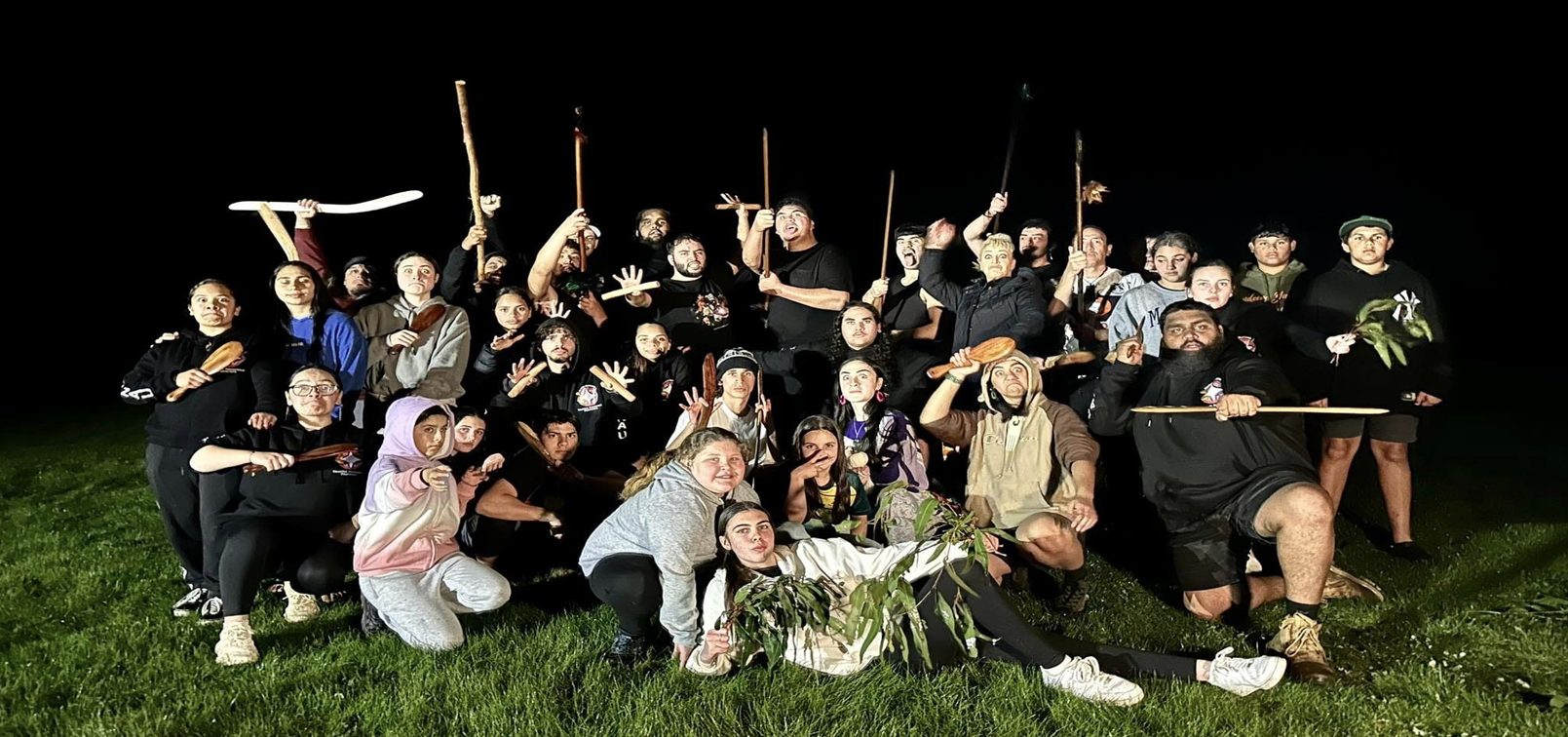The Bahá’í Faith, a global religion that champions the unity of humanity, draws profoundly enriching insights from the narratives and wisdom of Indigenous cultures. These teachings underscore the significance of establishing harmonious relationships with the Earth and each other, echoing the sentiments of various Indigenous peoples worldwide. In this exploration, we shall examine the intersection of Bahá’í tenets and Indigenous wisdom, emphasizing the thematic metaphor of ‘following in the footsteps of the Indigenous’ as a pathway to attaining a more unified and equitable world.
To perceive the Bahá’í Faith through the lens of Indigenous teachings is to engage with a philosophical and spiritual paradigm that emphasizes interconnectedness. Like the interwoven threads of a tapestry, the teachings of Bahá’u’lláh resonate with Indigenous values that celebrate the sanctity of life, the cycles of nature, and the importance of community. “Following in the footsteps of the Indigenous” does not merely denote physical emulation; rather, it signifies an earnest commitment to embodying principles such as respect for the natural world, acknowledgment of our collective history, and a reverence for spirituality that transcends temporal divisions.
In many Indigenous cultures, the land is revered not merely as a resource but as a living entity infused with spirit and wisdom. This holistic view aligns seamlessly with Bahá’í principles that advocate for the stewardship of the Earth. A Bahá’í understanding of the relationship between humanity and the environment posits that the earth is a vital entity deserving of care and reverence. Just as Indigenous peoples grasp the cyclical nature of ecosystems, Bahá’ís are called to advocate for sustainable practices that honor the balance of the planet. The metaphor of stewardship extends to our societal constructs, where individuals are urged to recognize their role as caretakers of both nature and community.
Moreover, the Bahá’í teachings emphasize the importance of collective progress through unity in diversity. This principle echoes the Indigenous belief in the value of communal wisdom and shared responsibilities. In diverse communities across the globe, there lie profound narratives and teachings that illustrate the bounty of cooperation and the strength found in inclusivity. By advocating for social justice and equality, Bahá’ís are indeed ‘walking in the footsteps’ of Indigenous leaders who have long championed the rights and dignity of marginalized groups. This cooperation forms a critical junction where Bahá’í values mirror Indigenous ideologies, presenting an opportunity to foster discourse that enriches both traditions.
Delving further into the concept of unity, it is essential to acknowledge the historical injustices faced by Indigenous communities. The Bahá’í Faith’s emphasis on justice provokes introspection regarding the historical sufferings endured by these cultures. In recognizing this shared narrative of struggle, Bahá’ís are compelled to pursue reparative justice and reconciliation, a call that parallels Indigenous efforts toward healing from past traumas. By acknowledging and honoring the poignant stories that shape Indigenous identities, Bahá’ís can create a more inclusive dialogue that fosters understanding and empathy. This engagement cultivates a fertile ground for healing, thereby enhancing the collective capacity to transcend divisions formed by colonialism and oppression.
The principles of consultation and dialogue central to the Bahá’í Faith present another significant overlap with Indigenous methodologies. In many Indigenous societies, decision-making is a communal process, steeped in the spirit of collective wisdom and mutual respect. The Bahá’í model of consultation encourages open discourse, where differing perspectives can be explored thoughtfully and without contention. Such a framework is vital in moving toward solutions that are equitable and just for all, thereby echoing the deep-rooted practices of Indigenous governance that prioritize the voices and needs of the community. Furthermore, fostering environments of genuine dialogue can serve to dismantle the historical power dynamics that have marginalized Indigenous voices.
As we reflect upon arts and culture, it becomes evident that the Bahá’í teachings align harmoniously with the Indigenous commitment to storytelling, the arts, and cultural preservation. Through oral traditions, Indigenous cultures transmit knowledge, spirituality, and identity. Bahá’ís, too, recognize the power of storytelling to convey profound truths. Artists and storytellers serve as bridges across cultures, fostering connections that celebrate diversity while illuminating common threads. In valuing these expressions, Bahá’ís can encourage collaborations that honor and amplify Indigenous art forms, fostering a reciprocal relationship that highlights cultural richness while promoting mutual understanding.
Education is another realm where the interconnection of Bahá’í teachings and Indigenous wisdom manifests profoundly. The Bahá’í model of education promotes holistic approaches that cultivate not only intellectual growth but also moral and spiritual development. This educational philosophy resonates with traditional Indigenous methods that seek to nurture the whole person. By intertwining these educational paradigms, we can create a learning environment that honors the past while preparing future generations to navigate complexities with wisdom and compassion.
Ultimately, embracing the journey of “following in the footsteps of the Indigenous” requires an openness to learning. It is a call to acknowledge the teachings and lived experiences of Indigenous peoples, using them as a guide to inform Bahá’í practices and principles. This journey of enlightenment fosters humility and enriches the global Bahá’í community by integrating diverse perspectives into the collective narrative of humanity.
In conclusion, the teachings of the Bahá’í Faith resonate with the rich heritage of Indigenous wisdom, crafting a narrative that requires continuous exploration and engagement. As Bahá’ís endeavor to build a world rooted in justice, peace, and unity, the integration of Indigenous teachings offers rich insights that can deepen understanding and foster authentic connections. Through reverence, respect, and a commitment to shared values, we can truly embody the notion of walking in the footprints of those who have navigated the intricate connections of life, bridging divides and nurturing the shared human experience.
